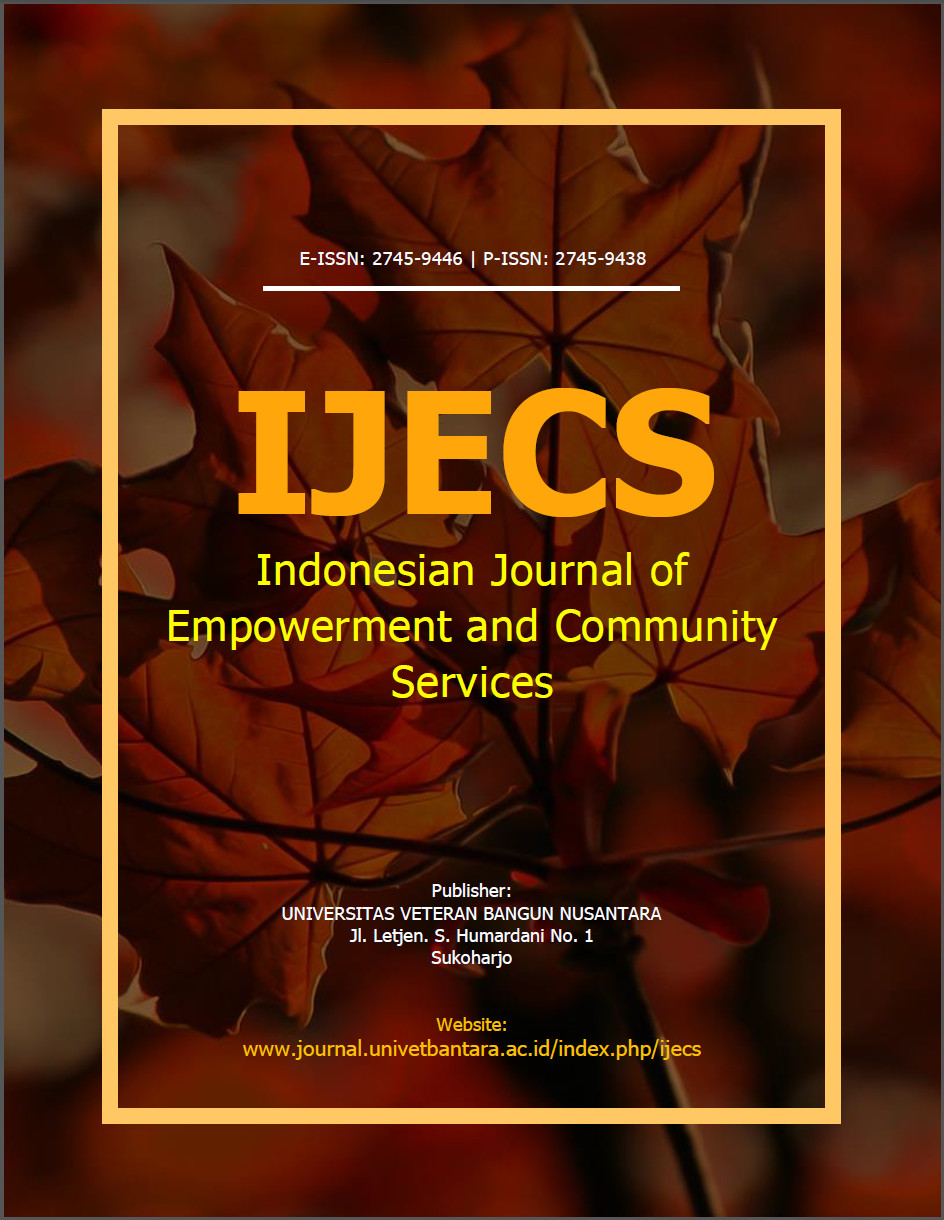Socialization of Waste Management and Distribution of Trash Bins to Increase Community Knowledge in Kedungbako Village
DOI:
https://doi.org/10.32585/ijecs.v6i2.7032Abstract
Waste is a crucial issue that must be addressed, especially by the government. Although waste is a particular concern, the reality is that it is not being managed properly. Waste remains an unresolved problem. Almost every day, people produce waste and it is mixed together from various types of waste. The accumulation of waste will cause various problems, such as flooding, ecosystem damage, and poor water sanitation. The purpose of this community service is to provide socialization about an effective waste management system, including the decomposition of organic and inorganic waste and the distribution of trash cans. Because the community service sees that one of the main factors that causes villagers to throw waste in the river is the lack of trash cans in several places frequently visited by the community. The method of implementing this PKM is initial implementation, socialization, distribution of trash cans, monitoring and evaluation with an emphasis on solving the problem, namely the lack of literacy and public awareness about waste. The conclusion of this community service is to create a clean environment free of waste that will have a positive impact on the community and the surrounding environment so that the community can realize the importance of managing waste that can generate economic value. It is hoped that this activity can increase and encourage public thinking about the benefits that can be generated by the presence of trash cans, waste management, and literacy that has been provided to the community.
Downloads
Downloads
Published
How to Cite
Issue
Section
License
Copyright (c) 2025 Pramita Mita, Dwita Laksmita Rachmawati, Sri Hastari

This work is licensed under a Creative Commons Attribution-ShareAlike 4.0 International License.
Authors who publish with the IJECS: Indonesian Journal of Empowerment and Community Services agree to the following terms:
- Authors retain copyright and grant the journal the right of first publication with the work simultaneously licensed under a Creative Commons Attribution License (CC BY-SA 4.0) that allows others to share the work with an acknowledgment of the work's authorship and initial publication in this journal.
- Authors are able to enter into separate, additional contractual arrangements for the non-exclusive distribution of the journal's published version of the work (e.g., post it to an institutional repository or publish it in a book), with an acknowledgment of its initial publication in this journal.
- Authors are permitted and encouraged to post their work online (e.g., in institutional repositories or on their website) prior to and during the submission process, as it can lead to productive exchanges, as well as earlier and greater citation of published work.





